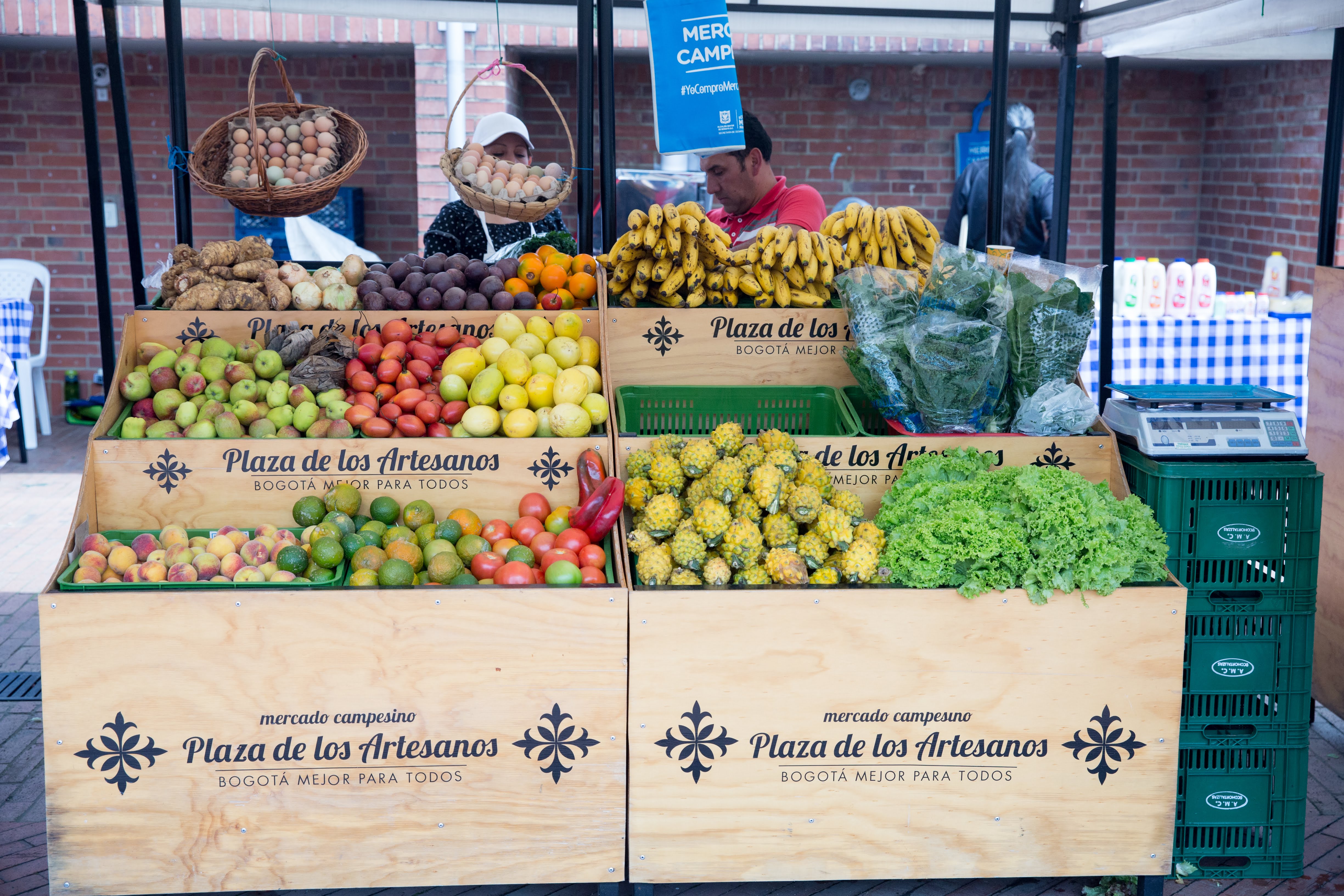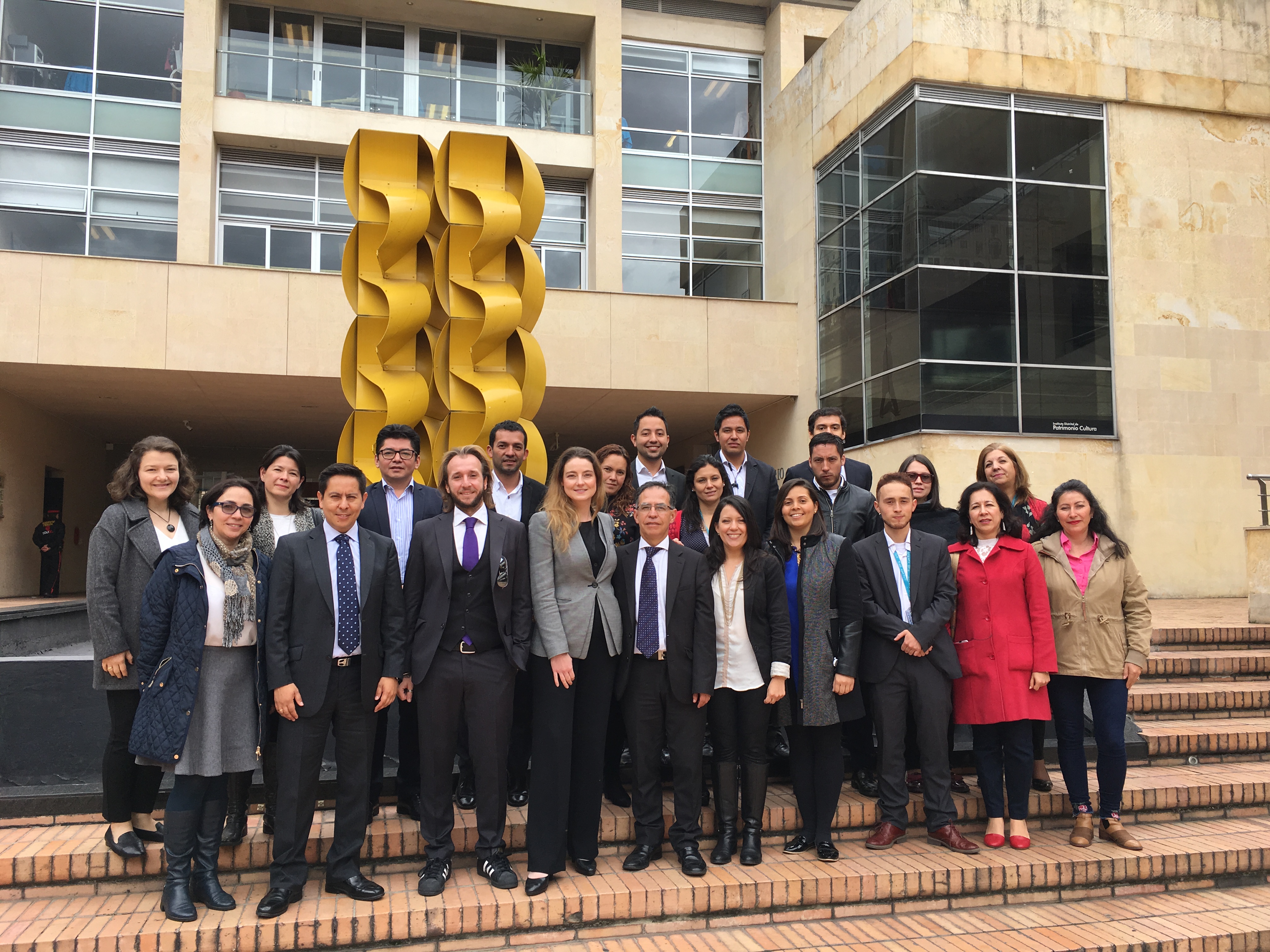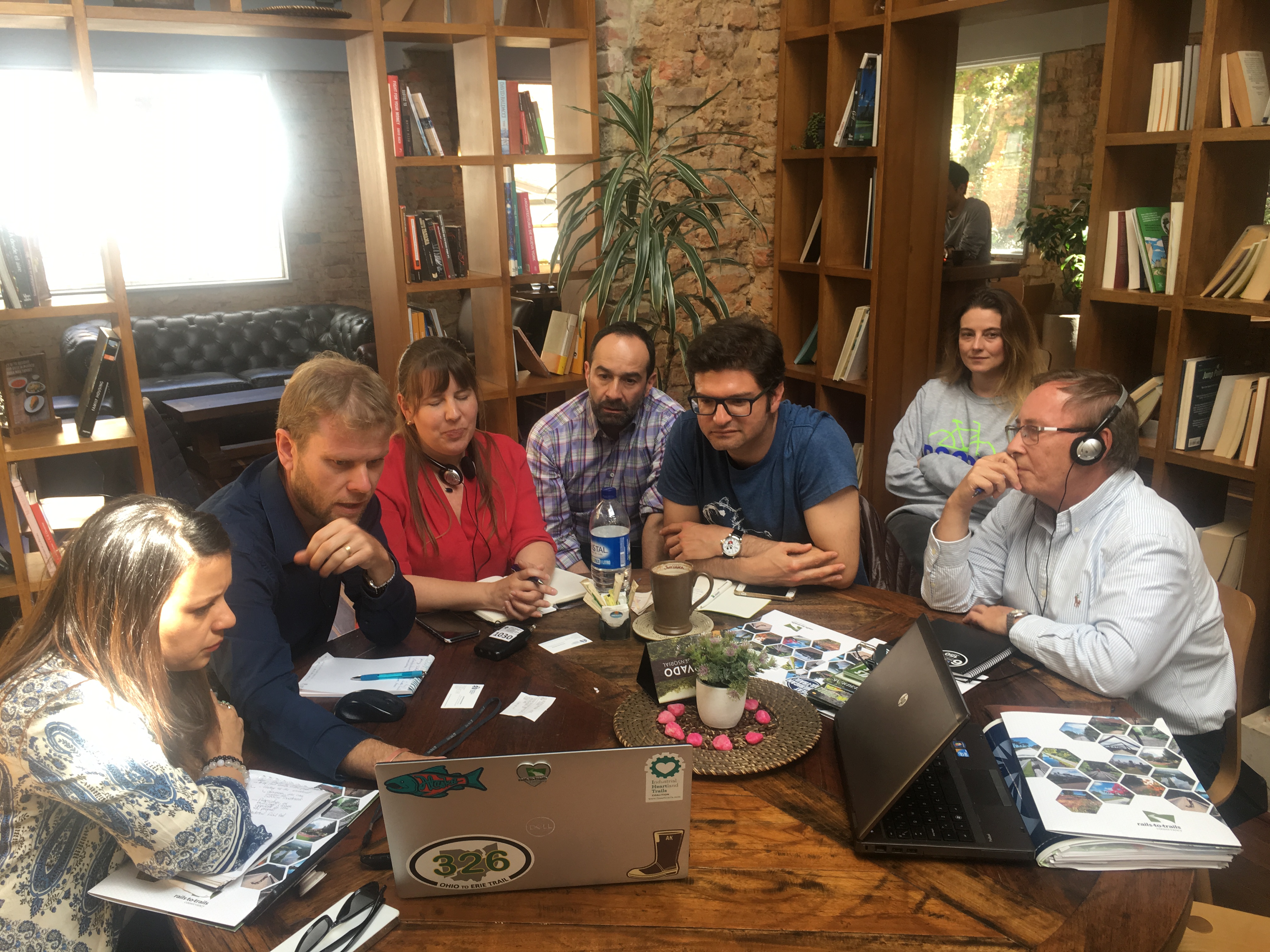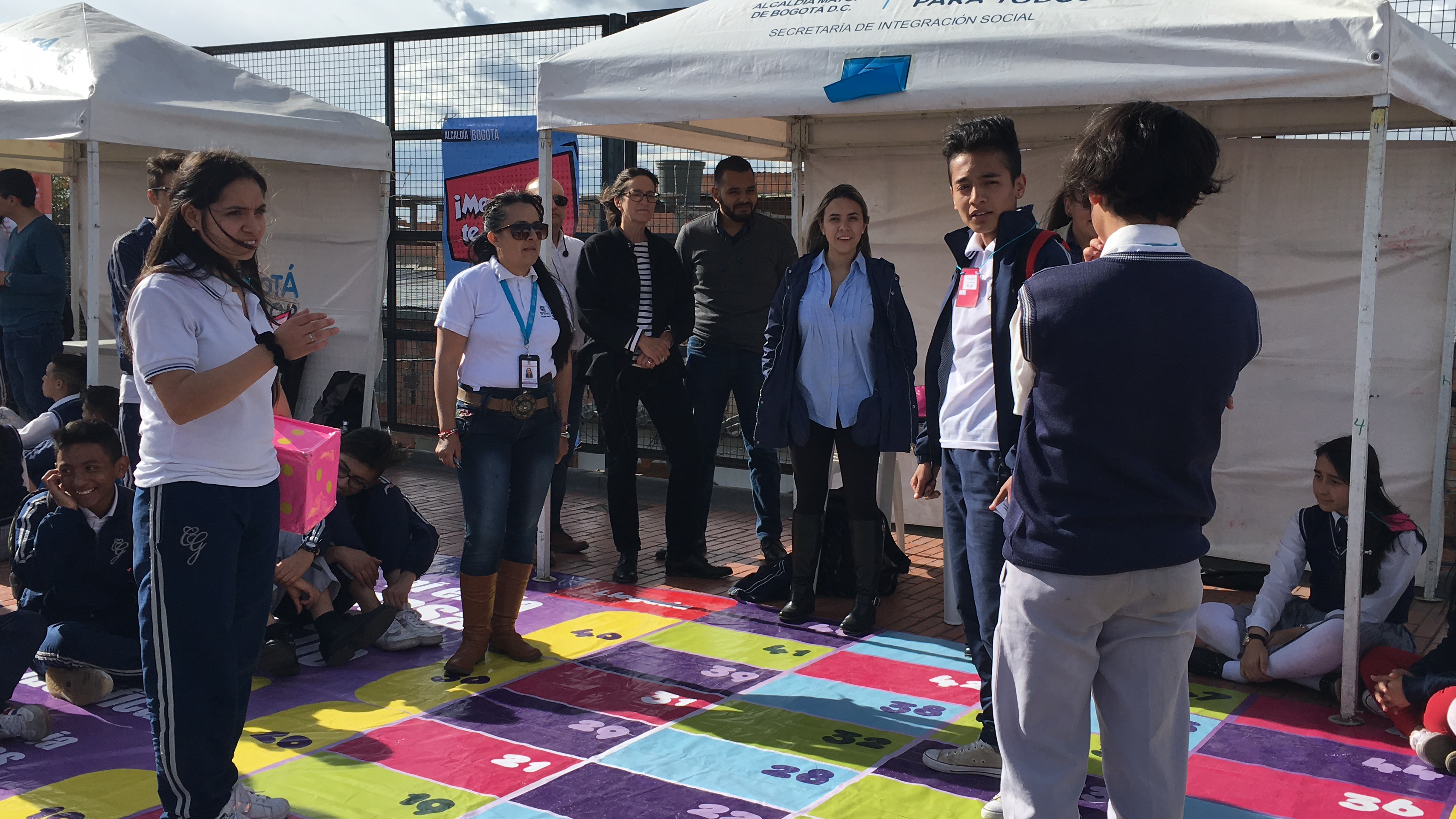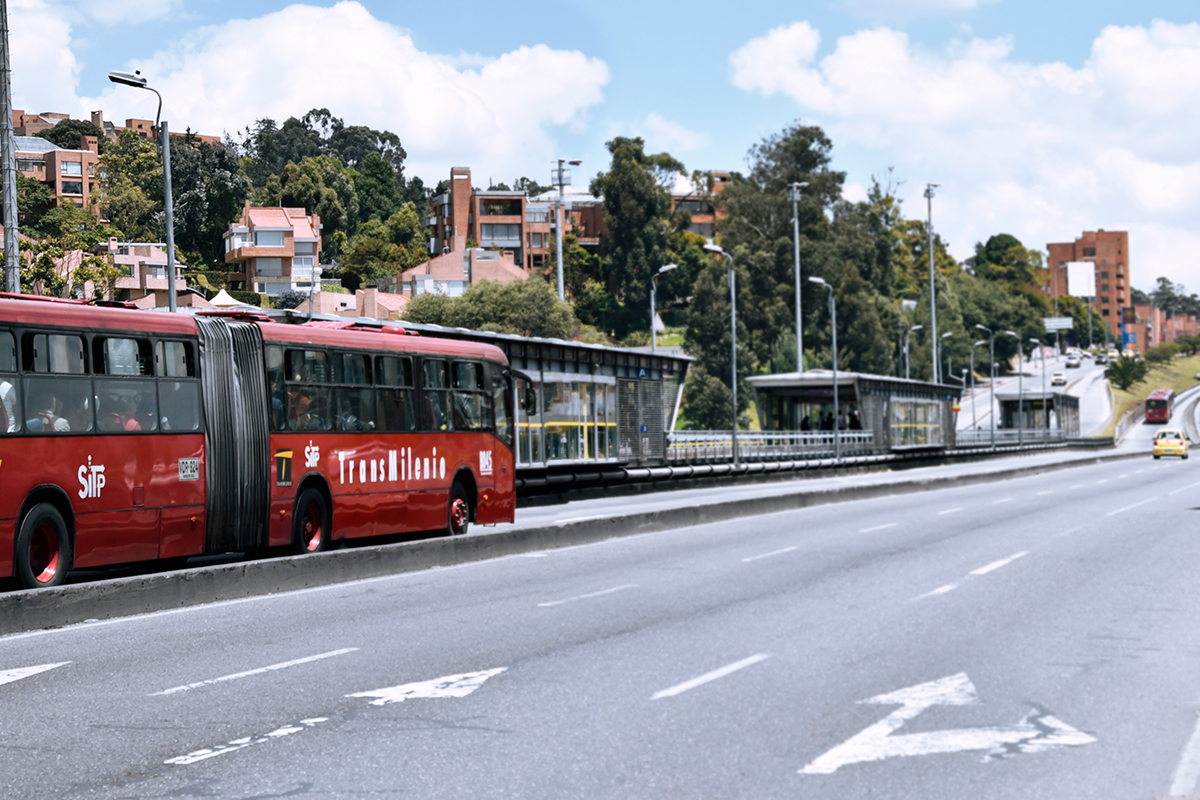 - © City of Bogotá
- © City of Bogotá- - © City of Bogotá
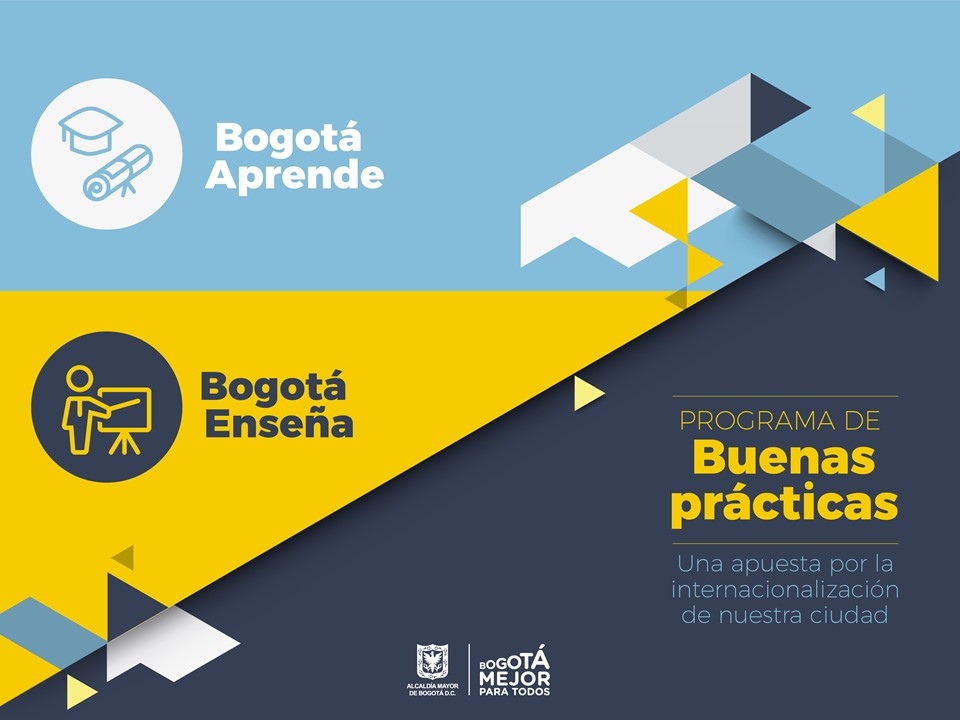 - © City of Bogotá
- © City of Bogotá- - © City of Bogotá
- - © City of Bogotá
- - © City of Bogotá
City
Bogotá
Main actors
City Government, Supranational / Intergovernmental Institutions
Project area
Whole City/Administrative Region
Duration
Ongoing since 2016
Bogota creates International knowledge exchange opportunities for successful policymaking.
The Best Practices Program led by Bogota’s City Hall aims at promoting the exchange of knowledge and experiences as a key factor for innovation and promotion of the city. The program has two lines of action: Bogota Aprende (Bogota Learns), seeks to learn from successful international cases, and Bogota Enseña (Shares), aims to position the city internationally through the systematization and promotion of its good practices.
The Best Practice Program led by the District International Relations Office emerged in 2016 as part of the city’s Internationalization Plan under the District Development Plan 2016-2019.
For the four years, the International Relations Office established as a goal identifying and sharing 20 international good practices from Bogota and simultaneously developing 48 international opportunities for learning and teaching.
The implementation of the program was gradual. It started with the development of Bogota Aprende in two stages: 1) Design of the program’s methodology (2016), and 2) Implementation, with a total of 21 knowledge exchanges between 2017-2019.
The second phase commenced in 2018 with the development of the Bogota Enseña methodology and closed the administration with 20 good practices systematized and promoted. Bogota Aprende and Bogota Enseña, both have their own methodology.
Bogota Aprende:
The methodology is structured in six phases:
- Identify the need and limit the problem. The district entity interested in participating in the program specifies the knowledge need.
- Identify successful international practices. The International Relations Office, with the help of the interested entity, identify possible international good practices. The good practice selected is due to its suitability for replication in Bogota.
- Choose the expert(s) and design of the knowledge exchange: Once the good practice is defined, the international expert is chosen. Then, the best knowledge exchange tool designed (technical visit, study tour, webinar).
- The face-to-face meeting with the expert and implementation of the knowledge exchange: The face-to-face meeting requires technical and logistical preparation, which involves: the elaboration of the agenda, sending invitations, among others.
- Lessons learned, documentation of the process, and development of the action plan: The entity develops an Action Plan to ensure the implementation of the knowledge transfer and lessons learned. Moreover, there is a final document that gathers the results: topics discussed, report of the work sessions, lessons learned, the action plan, conclusions, and photographic report.
- Implementation of the Action Plan: To ensure the implementation of the Action Plan, the Office of International Relations makes quarterly meetings.
Bogota Enseña:
The methodology is structured in three phases:
- Identify successful experiences: The Office of International Relations invites different district entities to nominate their experiences. To consider an experience successful, they must fulfill 4 criteria: innovative, effective, sustainable and replicable.
- Systematize the good practice: The systematization is through a structured process of identification, gathering, and analysis of the information
- Promotion and distribution of good practices: The good practice is accompanied by a promotion and distribution strategy.
The Best Practice Program has its own budget and covers the following expenses:
- Travel of the international experts.
- Logistics expenses of the experts in Bogota during the exchange (meals, accommodation, lodging, transportation and translation).
- Logistical expenses of the systematization and reporting workshops of the day.
Additionally, the program has had the financial support of partners such as: Programa Asesores Holandeses (Dutch Advisors Programme), Servicio de Asesores Expertos de Alemania (Expert Advisory Service of Germany), Secretaría Distrital de Educación (District Secretary of Education), Agencia Presidencial de Cooperación Internacional de Colombia (Presidential Agency for International Cooperation of Colombia), Catastro de Holanda (Cadastre of Holland), Bloomberg Associates, British Council and Invest in Bogota.
- Through the knowledge and experience exchange with other international actors, the program promotes strategic projects of the city, ensuring sustainability, therefore having an impact (direct and indirect) on citizens' lives. Moreover, the programs' methodology guarantees the replication of knowledge deriving from the exchange.
- A structured and standardized methodology: both action lines of the program have a structured and documented methodology based on the existence of methodological guides, roadmaps, communication pieces and technical documents that support the program.
- Joint work with other actors: exchange scenarios: The program's workshops promotes the interaction between actors with different background (public, private, academia, civil society organizations, international organizations, etc.), fostering mechanisms of articulation, sharing information, and making visible issues of interest and generating synergies of joint work.
- Follow-up of good practices: The program guarantees an impact through regular follow-ups.
- Networking: The experts are willing to provide continuous support and promotion in subsequent scenarios of participation.
- Promotes a culture of self-reflection and analysis: motivated by an external facilitator who can identify new ways of doing things, adapt other experiences to local reality and generate actions for improvement. These improvement actions benefit products or services for citizens.
- Facilitate the generation, dissemination and application of knowledge: explicit (written, in formal and systematic language) and implicit (subjective perceptions, intuitions and learning based on experience) within the entities, as well as the institutional memory of the entities.
Specifically, each line presents the following results:
Bogota Aprende
- 21 good practices implemented between 2016-2019.
- 9 District Administration sectors benefited.
- 28 international experts of recognized prestige from the public sector, private sector, academia and international organizations participating.
- 16 countries from Europe, America, Asia and Oceania offering knowledge.
- 14 strategic allies that provided both technical and financial support.
- 18 beneficiary district entities (leading sectors and associates).
- 808 participants in good practices among public sector actors at the national and local levels, private, civil society and academia, and international organizations.
Bogota Enseña
- Number of systematized good practices: 20 between 2018-2019
- Number of sectors benefited: 13 sectors of the District Administration.
- Number of beneficiary district entities: 18 sector leader and associates.
- Total number of participants: 228 participants in the systematization of good practices among public sector actors at the national and local levels, private, civil society and academia.
- Number of promotion channels/mechanisms identified: 8 international events and 2 networks.
- The following good practices from Bogota Best Practice Program have been shared with the use platform:
Bogota Aprende:
- Motivate district entities with strategic city projects to join the program.
- Identify international good practices that will adjust to the needs of the beneficiary entity.
- Define the participation of international experts is often made difficult by not being able to assume costs of professional fees.
- Define clear guidelines for the follow-up to the Action Plan derived from the exchange of knowledge.
Bogota Enseña:
- Comply with the planned systematization times by applying technical rigor to the designed methodology, taking into account the availability of the technical teams and participants involved in the systematization.
- Motivate district entities with strategic projects and diverse sectors to join the program.
- Form an evaluation team with the right people and technical knowledge in the topics to be evaluated.
- To have the capacity to accompany all collaboration requests derived from the promotion and dissemination of good practices.
In the implementation of Bogota Aprende, the main lessons learned are:
- Involve the strategic partners in advance.
- Involve the technical teams of the district entities from the planning phase of the exchange.
- The knowledge requirements of the entities may vary through the process.
- The fluent dialogue with the districts’ entities ensures the effectiveness of the program promotion and dissemination
- The logistical aspect has a great impact on the success of the good practice knowledge transfer.
- Surveys generate important data for improving the program;
In the Bogota Enseña, the main lessons learned are:
- The most effective program promotion and dissemination activities are those in which a direct dialogue with the entities is encouraged (breakfasts, technical meetings, events).
- Without losing its technical rigor, the methodology must be flexible to adjust to the needs that arise in the systematization process.
- It is necessary to map and identify strategic partners for technical and financial support of the program.
- It is necessary to develop a promotion and distribution strategy for each good practice, which includes collective and individual promotion and dissemination scenarios.
Both lines of action of the program have a structured and documented methodology that can be transferred to other interested cities and adapted to their institutional contexts.
City of Bogota’ Best practice document
External links / documents
On Map
The Map will be displayed after accepting cookie policy
